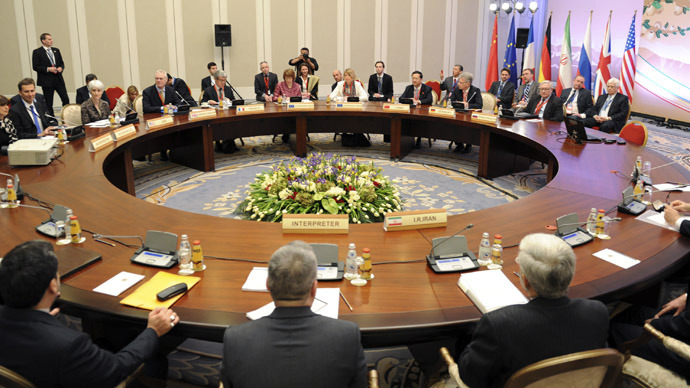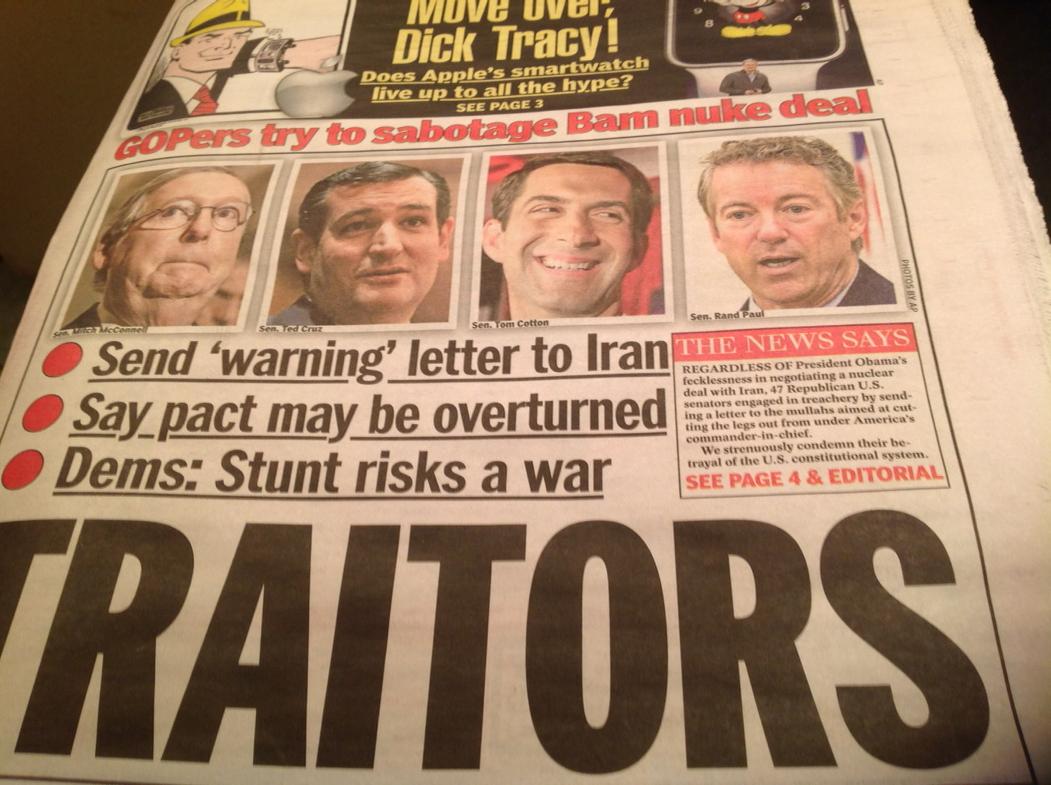To say that Middle Eastern politics are complicated is an understatement. You could spend a lifetime trying to understand the religious, political, geographical and ideological reasons for the hostility between Iran and Israel and the complicated role that the United States plays in the conflict, but you may just give yourself an aneurysm in the process.
If you only have a few minutes to try to understand this clusterfuck before your Birthright trip or Passover Seder with your argumentative Jewish grandma, this is for you.
Who are the characters?
Israel has historically been a major ally of the United States. On the other hand, Iran and Israel have some beef that dates back to the creation of the Jewish state. And if you haven’t already heard, Iran and the U.S. haven’t really been friends since Iranian revolutionaries took 52 Americans hostage in 1979. So basically, all this stems from shit that happened a long time ago.

Via: The Retired Goblin
But it turns out that Iran has developed pretty extensive nuclear facilities that might pose a threat to people who aren’t comfortable with the idea of atomic warfare.
Israel currently ranks no. 1 on the list of countries who really, really don’t want Iran to develop a nuclear bomb, given their history of tension and Iranian politicians saying things like, “We will chase you [Israelis] house to house and will take revenge for every drop of blood of our martyrs in Palestine, and this is the beginning point of Islamic nations awakening for your defeat” (Hossein Salami, 2014).
Scary, right? It is no wonder that Israel allied itself with the U.S., a country that is teeming with nuclear weapons. Having scary friends makes it difficult to make a move without plunging the world into utter chaos.

Via: RT
What’s happening?
Due to this little security threat, the United States and other nations have been negotiating with Iran for several years to try to get them to use this nuclear capability for good instead of evil. Critics of these negotiations, including Israel and most Congressional Republicans, argue that the deal would essentially be a façade and Iran would continue to advance its nuclear program in secret and without restraint. Regardless of criticism, Iran has been supportive of the negotiations and a deal was expected within the upcoming year.
But then all hell broke loose.
The agreement relies on the fact that the Iranian economy has been hit pretty hard by sanctions imposed by the United States and other countries. In return for freezing their nuclear program, the sanctions would gradually be lifted. A deal with the United States would also improve Iranian standing in the world and, Iranians hope, spur investment into their economy as well.

Via: Rand Corporation
How we messed it up
Speaker of the House and undercover Oompa Loompa John Boehner invited Israeli Prime Minister Benjamin Netanyahu to come speak to Congress, knowing he was highly likely to denounce the Iran negotiations. Apparently Boehner got too caught up in planning the big day and forgot to tell President Obama or the State Department, as precedent generally dictates you’re supposed to do. Oops.
A Republican snubbing President Obama is hardly newsworthy, but the situation quickly progressed into a Kanye/Taylor Swift/Beyoncé at the Grammys moment, only with a few million more lives at stake.
Congressional Republicans essentially said, “President Obama, we’re going to let you finish your negotiations, but we just want you to know that Israel is the best U.S. ally of all time.”

Via: Twitter
They sent “An Open Letter to the Leaders of the Islamic Republic of Iran,” warning the country that any agreement made with President Obama could be canceled after his presidency is over. Because interfering in ongoing negotiations is arguably unconstitutional and illegal, the letter very carefully does not state opposition to the negotiations, it only gives a Schoolhouse Rock-esque explanation of the features of our government that would allow for members of Congress or a new president to invalidate the deal after Obama leaves office.
The letter, signed by 47 Republicans, is considered by many to be an unprecedented congressional intervention into foreign policy. President Obama and numerous Democrats have expressed disbelief and outrage over the letter, some even going so far as to call it “treasonous.” Ayatollah Ali Khamenei, Iran’s supreme leader, said that the letter is “a sign of a decline in political ethics and the destruction of the American establishment from within.” Yikes.
Surprisingly and thankfully, despite this whole fiasco, Iran still wants to continue negotiations.

Via: Inquisitr
What’s my opinion?
Concerns about the Iran deal and the survival of Israel are valid, but sending a letter with the intent of undercutting Presidential authority is a reckless slap in the face to the Obama Administration and the other countries that have worked for years on these negotiations. Nuclear war is scary, end of story. We should take these negotiations seriously and focus intelligence efforts on ensuring that Iran isn’t making any bombs behind our backs. Because at the end of the day, nuclear war doesn’t care about the boundaries of countries; it would destroy us all.
Feature photo courtesy of: PBS






